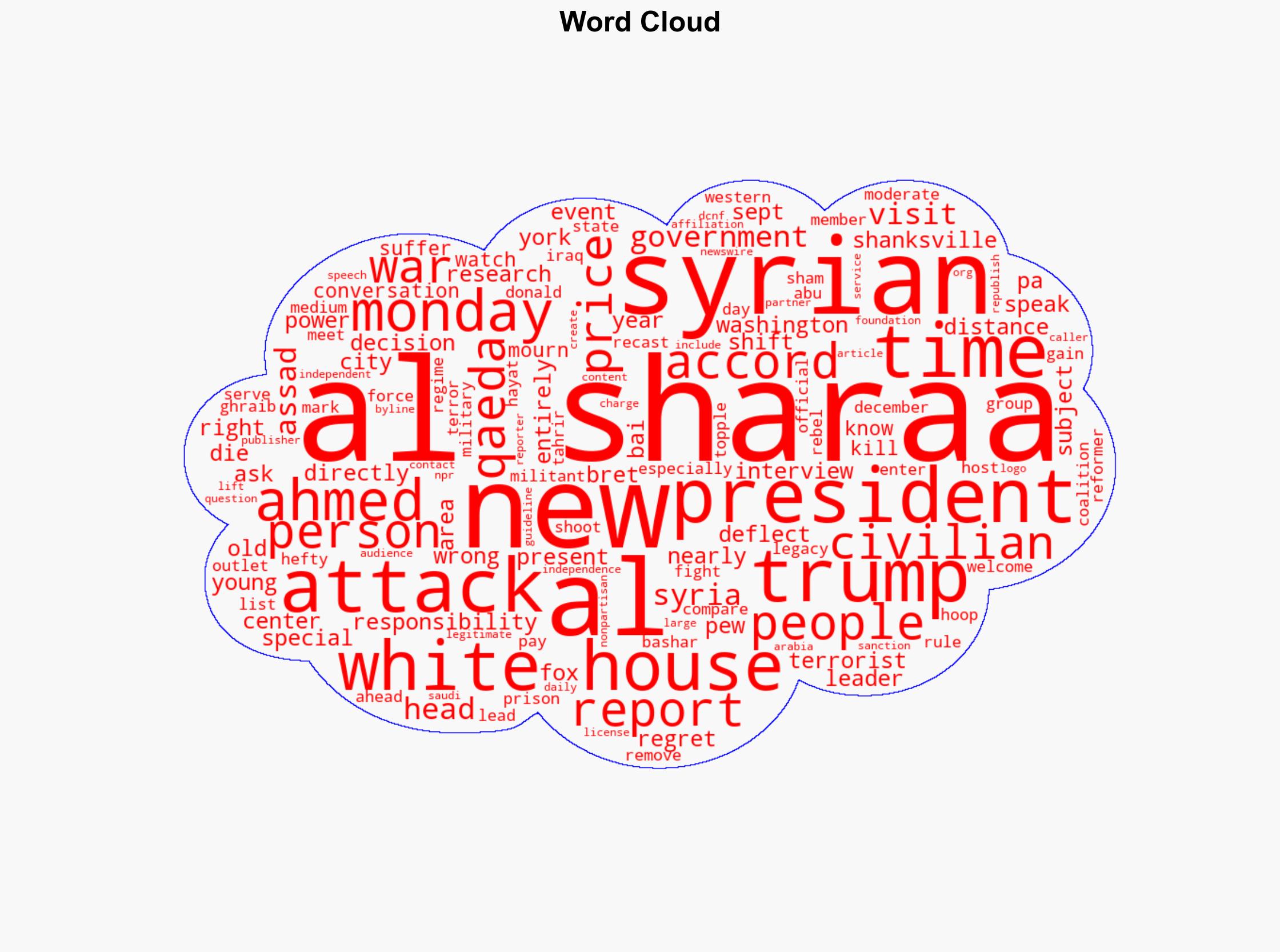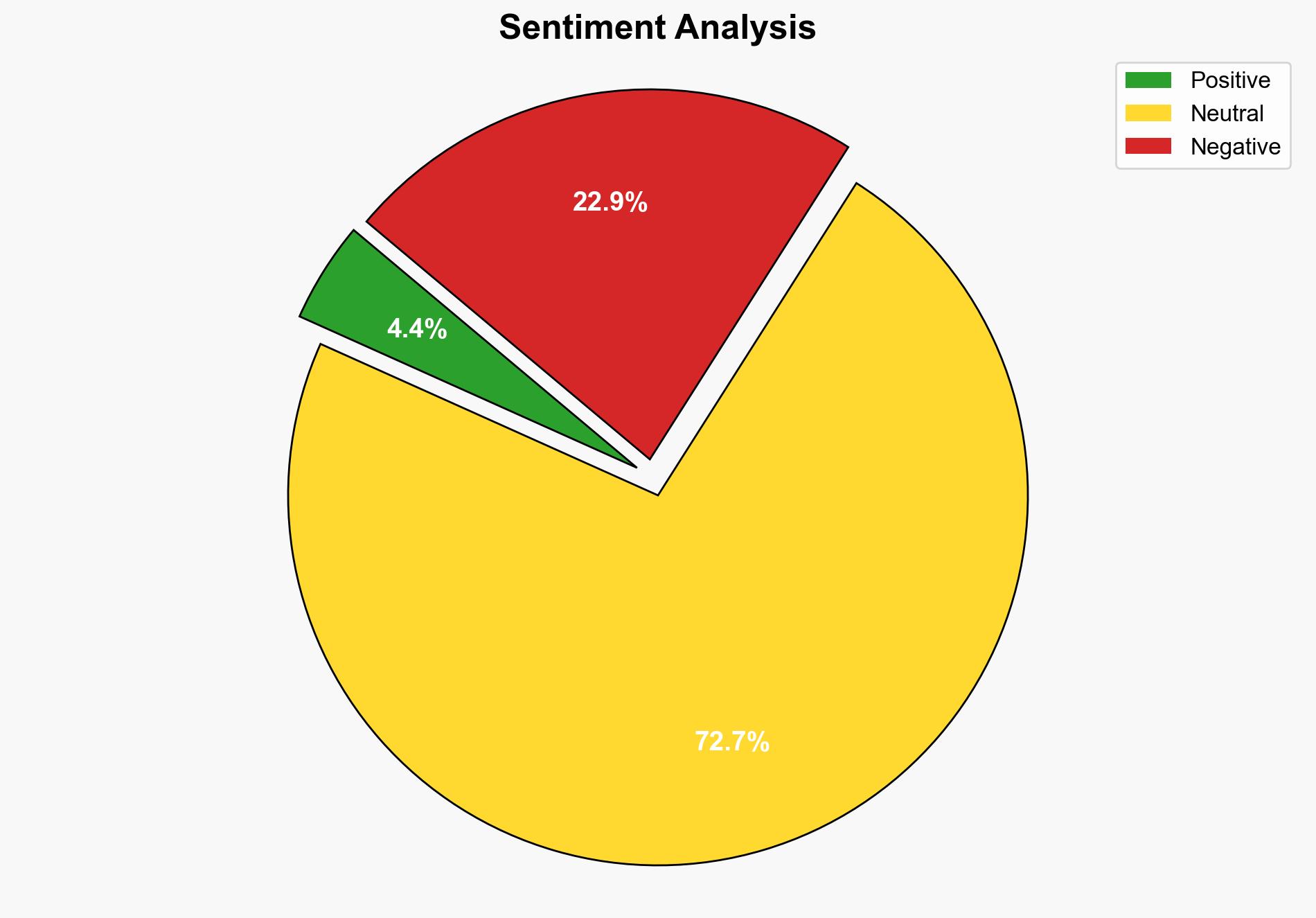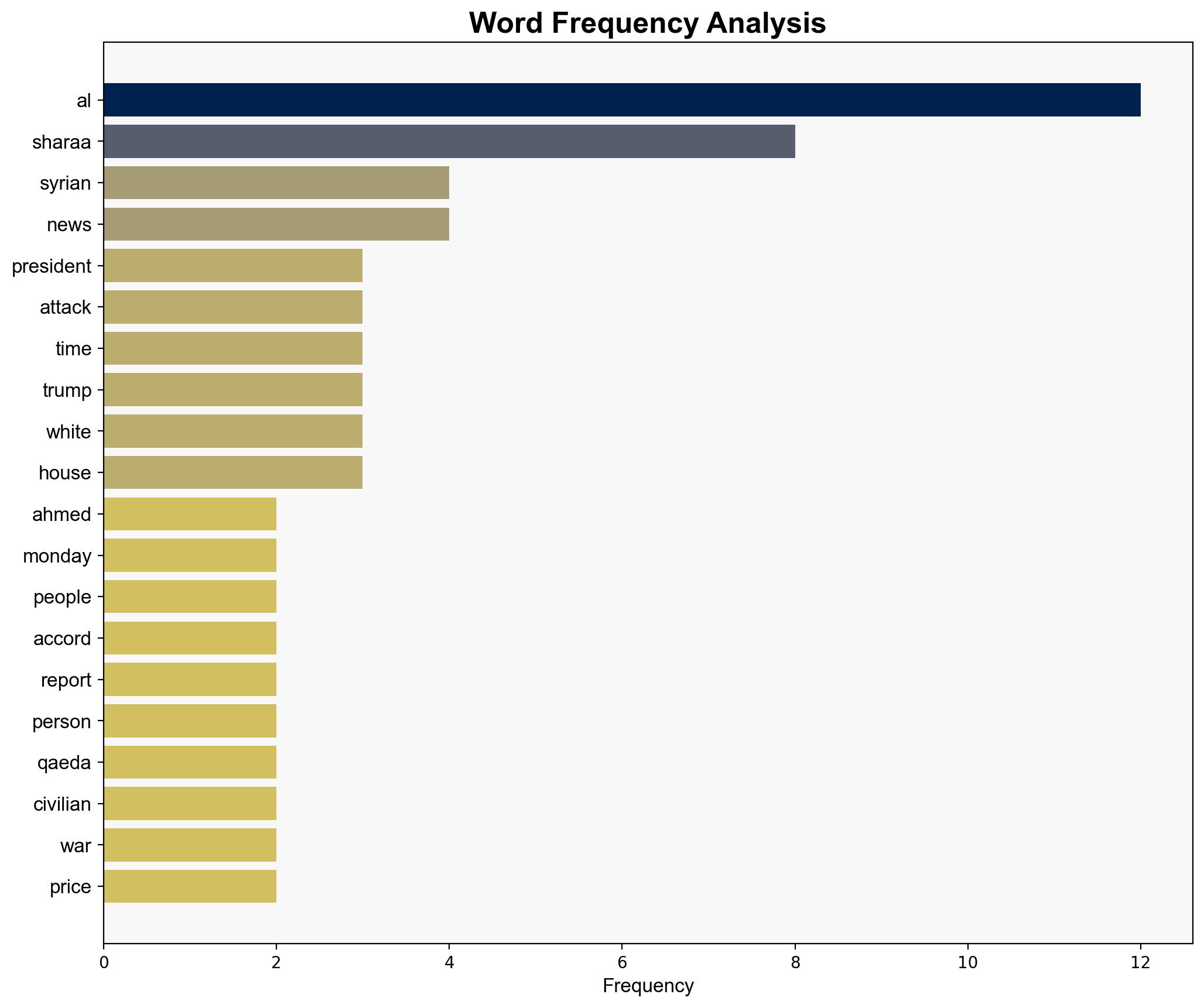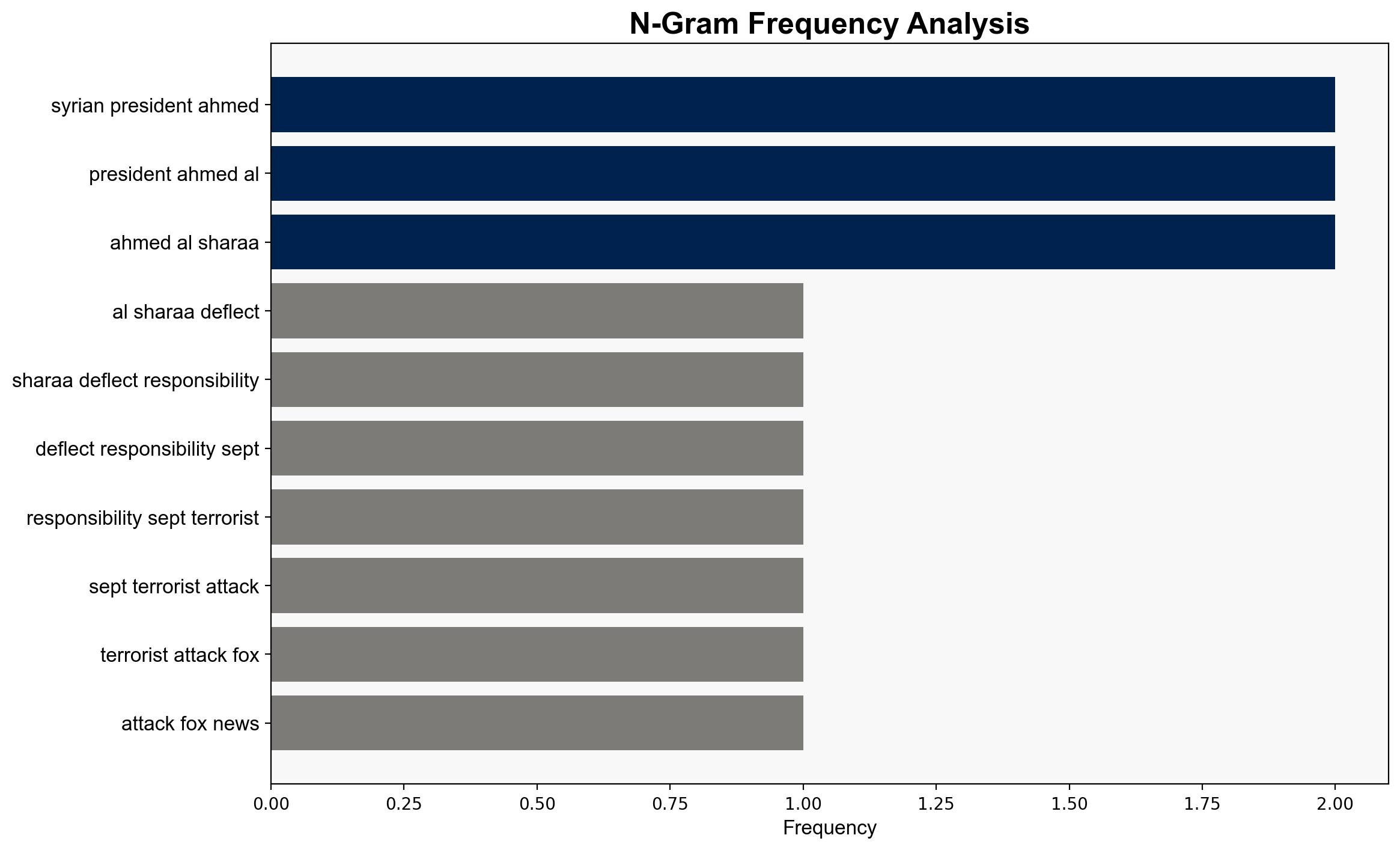Ex-Terrorist Leader Goes On Fox News Gives Wild Answer About 911 – The Daily Caller
Published on: 2025-11-12
AI-powered OSINT brief from verified open sources. Automated NLP signal extraction with human verification. See our Methodology and Why WorldWideWatchers.
Intelligence Report: Ex-Terrorist Leader Goes On Fox News Gives Wild Answer About 911 – The Daily Caller
1. BLUF (Bottom Line Up Front)
There is a moderate confidence level that Syrian President Ahmed al Sharaa’s statements on Fox News are part of a strategic narrative to distance himself and his regime from past terrorist activities and to rebrand his leadership in a more favorable light to Western audiences. The most supported hypothesis is that al Sharaa is attempting to leverage media appearances to gain political legitimacy and support from Western powers, particularly the United States. Recommended action includes monitoring al Sharaa’s media engagements and diplomatic activities for shifts in Syrian policy and potential influence operations.
2. Competing Hypotheses
Hypothesis 1: Ahmed al Sharaa’s statements are an attempt to distance himself from past terrorist affiliations and rebrand his image to gain political legitimacy and support from Western nations.
Hypothesis 2: Al Sharaa’s statements are primarily aimed at internal audiences, seeking to consolidate power by portraying himself as a reformer and distancing from extremist elements.
Hypothesis 1 is more likely due to the timing of his statements coinciding with diplomatic engagements in the U.S., suggesting a strategic communication effort aimed at Western audiences.
3. Key Assumptions and Red Flags
Assumptions include the belief that al Sharaa’s media appearances are coordinated with broader diplomatic efforts. Red flags include the potential for deception in al Sharaa’s narrative, given his past affiliations with extremist groups. The removal from the terror list shortly before meeting with President Trump suggests possible behind-the-scenes negotiations or influence operations.
4. Implications and Strategic Risks
The strategic risks include the potential normalization of a former terrorist leader, which could undermine counterterrorism efforts and embolden other extremist figures. There is also a risk of backlash from domestic and international actors opposed to al Sharaa’s regime, potentially leading to increased regional instability or retaliatory actions.
5. Recommendations and Outlook
- Monitor al Sharaa’s diplomatic and media engagements for shifts in policy or influence operations.
- Engage with regional allies to assess their perceptions and responses to al Sharaa’s rebranding efforts.
- Best-case scenario: Al Sharaa’s rebranding leads to constructive diplomatic engagement and regional stability.
- Worst-case scenario: Al Sharaa’s efforts are a facade, leading to renewed extremist activities and regional conflict.
- Most-likely scenario: Al Sharaa continues to seek legitimacy through media and diplomatic channels, with mixed success.
6. Key Individuals and Entities
Ahmed al Sharaa, President of Syria; Donald Trump, Former U.S. President; Hayat Tahrir al Sham, Militant Group.
7. Thematic Tags
Regional Focus: Middle East, U.S.-Syria Relations, Counterterrorism, Media Influence
Structured Analytic Techniques Applied
- Causal Layered Analysis (CLA): Analyze events across surface happenings, systems, worldviews, and myths.
- Cross-Impact Simulation: Model ripple effects across neighboring states, conflicts, or economic dependencies.
- Scenario Generation: Explore divergent futures under varying assumptions to identify plausible paths.
Explore more:
Regional Focus Briefs ·
Daily Summary ·
Methodology





